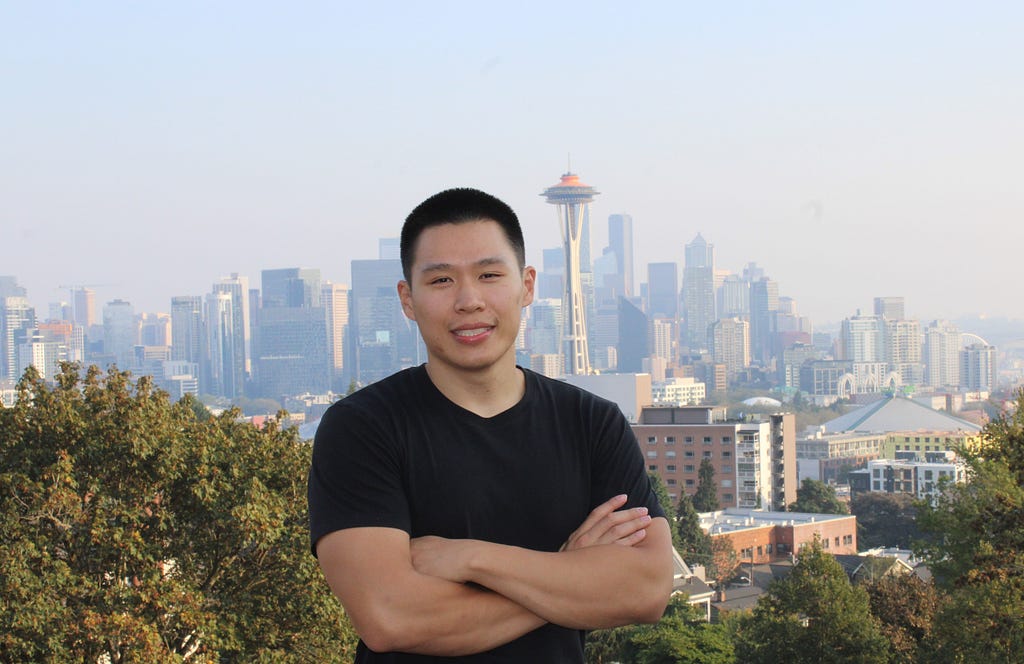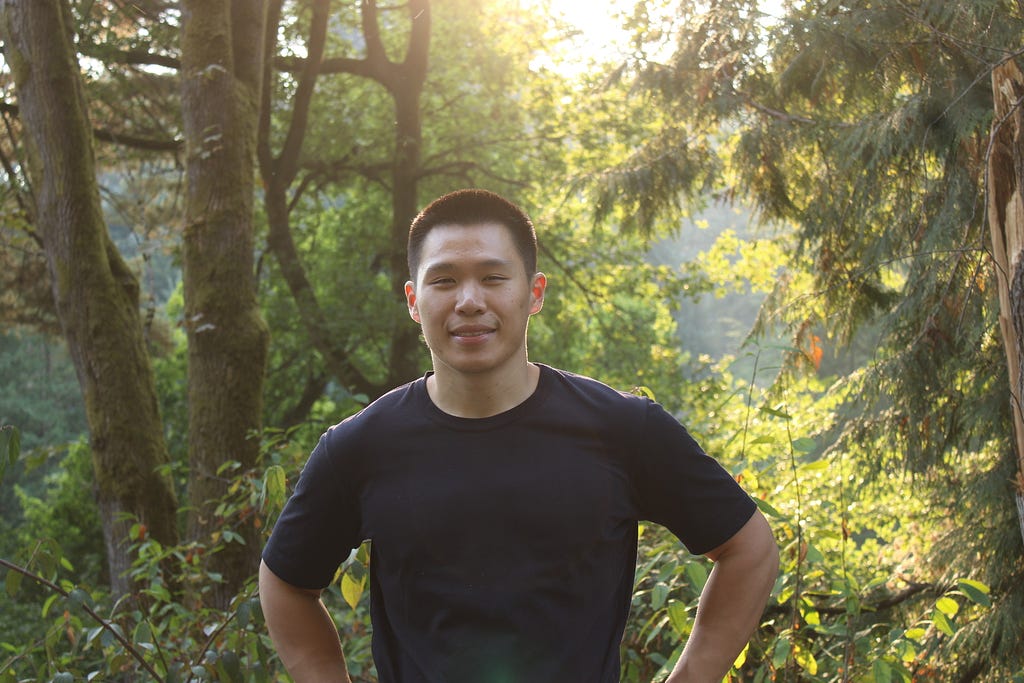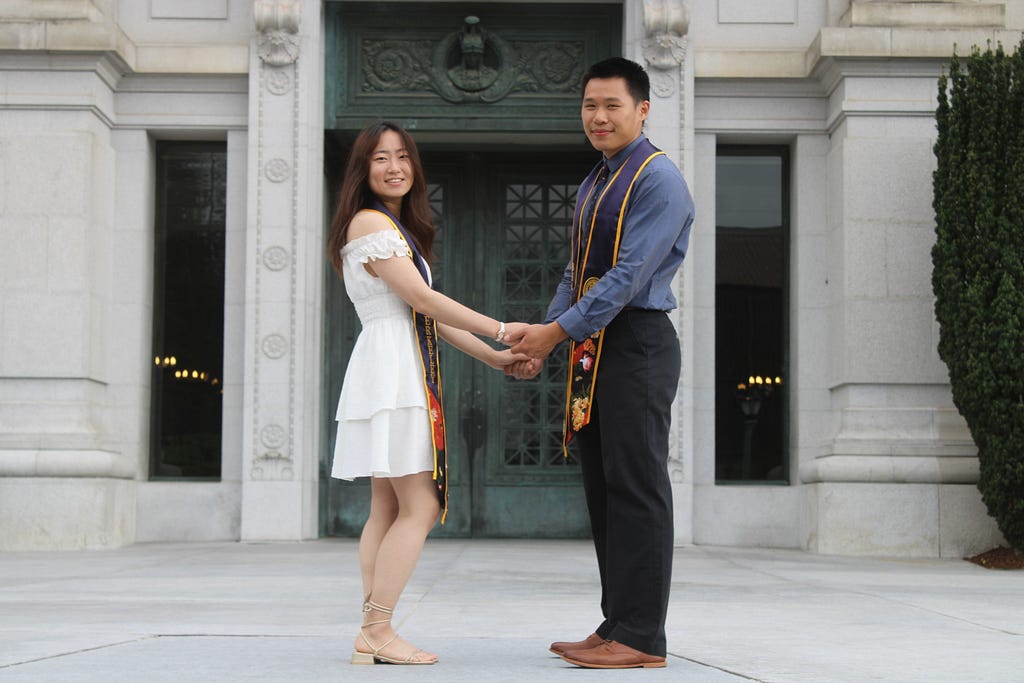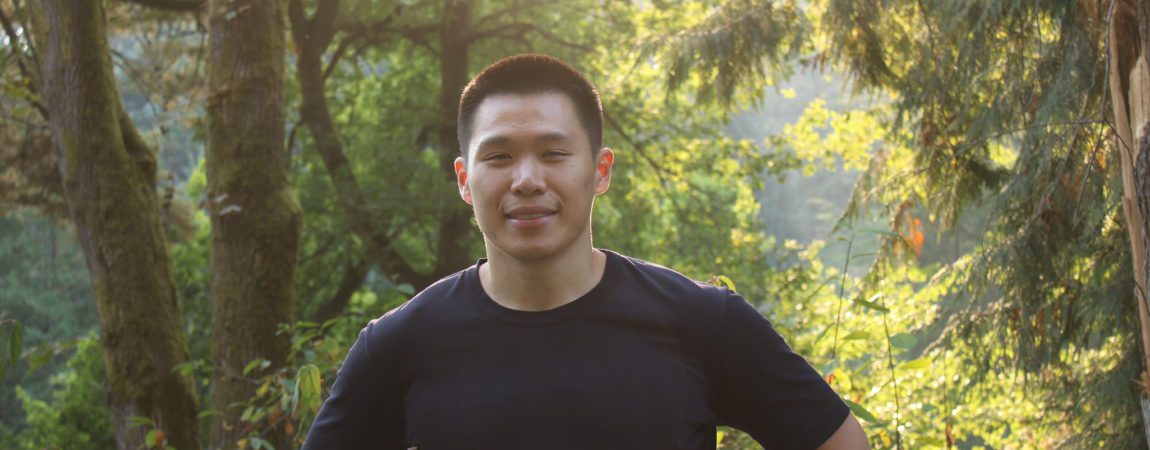On empathy, engineering, and being a voice for the voiceless
After graduating as a UCLA Bruin and working in industry for a couple of years, Patrick Cheng found he was destined to be a Golden Bear, joining UC Berkeley’s one-year Master of Engineering (MEng) program in 2021. There, he earned his master’s degree in mechanical engineering with a concentration on the control of robotic and autonomous systems and currently works as an engineer for Boeing. Throughout this diversity of experiences, however, one thing has always remained constant: Patrick is driven by a need to be a voice for the voiceless, inspired by the absence of his brother’s. This is his story.
Would you mind telling us a bit about yourself?
Hey! I’m Patrick and I’ve spent most of my life in Southern California. However, I’ve been to other places such as Taiwan, Arizona, and New York. After completing my undergrad at UCLA, I worked at Intel in Arizona for a couple of years and then left to join the MEng program at Berkeley. Since then, I’ve relocated to Washington where I help Boeing with airplane seat design and engineering. My career navigation is still open and exploratory, but I’m really vibing with my new team. It is incredibly exciting to see what the future holds.What led you to apply and join the Berkeley MEng program?
There were a few key factors that made Berkeley an easy choice: I sought to supplement my previous industry experience, the MEng was a one-year program, and I wanted to stay in California. Having worked at Intel as a process engineer, I was able to relate to many of the topics and case studies in the leadership courses. For example, I explored improving organizational behavior (E270A) in an interview with a previous colleague of mine. He pointed out how managers set deadlines that don’t accurately capture required labor hours. A solution discussed in class was to have a manager shadow a technician during a specific task to understand its full extent. Secondly, I planned to return to industry after grad school so the one-year MEng program stood out among longer MS programs. Lastly, attending Berkeley would allow me to stay close to home and enjoy more Cali weather!
What have you been pursuing since graduation? Is there something you are currently working on/interested in that you would like to share?
After graduating from Berkeley, I joined The Boeing Company as a seats design engineer where I interact with many internal and global teams. Sitting in premium seats at some mock-up facilities felt surreal because, like most people, I am used to the typical economy-class seat. The amount of rules and regulations from various agencies also layered some complexity behind what I thought was just a simple chair. For instance, airplane seats need to have specific performance ratings in the event of a fire or crash. But they also need to balance functionality with aesthetics to look nice for passengers. I am eager to work with both experienced teammates and those from other industries and roles.What are some of your non-academic hobbies/passions, and how, if at all, have they inspired your professional goals?
A couple of my biggest interests are weightlifting and anime. Both have played key roles in aiding my professional growth. Close to 10 years of training have taught me to continually challenge myself while being patient with results. Weightlifting also developed my mental fortitude, encouraging me to seek comfort inside discomfort. You can’t grow without facing uncomfortable situations and this is evident in all areas of life.You can’t grow without facing uncomfortable situations and this is evident in all areas of life.Similarly, a common theme in anime shows is that of never giving up. As a certain character said, it’s not that you will succeed if you don’t give up. Rather, it’s that failure is guaranteed if you give up. The story writers are excellent at making heroes appear human and relatable. Additionally, as someone who sketched for more than six years and is into hi-fi music, I highly appreciate the intricate animation and emotional soundtracks.
Who is your biggest inspiration?
Academic courses or demanding workouts can be approached with a plan but living with my autistic brother, Jeffrey, was an arduous test that I struggled with while growing up. My emotional maturity has been directly shaped by understanding empathy — one of the many key lessons Jeffrey has taught me. I continually regret that he cannot live his life to the fullest like I can. Although Jeffrey now lives in a group home, he continues to impact my life by inspiring me to practice gratitude and strive for improvement.What kind of impact do you want to have on the world?
As an engineer, I aim to help my audience find its voice — inspired by the absence of my brother’s.My life experiences have instilled an open mindset within me. I have learned how to better understand and communicate with others as well as to embrace personal weaknesses in order to improve. I believe diversity among people is something that can further enrich our experiences whether it is within the classroom, on the court, or in our own homes. Through the breadth of engineering, I have found myself an outlet through which I can utilize my skills and interest in learning to serve others. As an engineer, I aim to help my audience find its voice — inspired by the absence of my brother’s.
Fun fact:
I met my girlfriend at MEng’s online boot camp. Get out there and be social! You never know what kinds of connections you’ll make.
Patrick Cheng, MEng ’22 (ME): “You can’t grow without facing uncomfortable situations” was originally published in Berkeley Master of Engineering on Medium, where people are continuing the conversation by highlighting and responding to this story.





